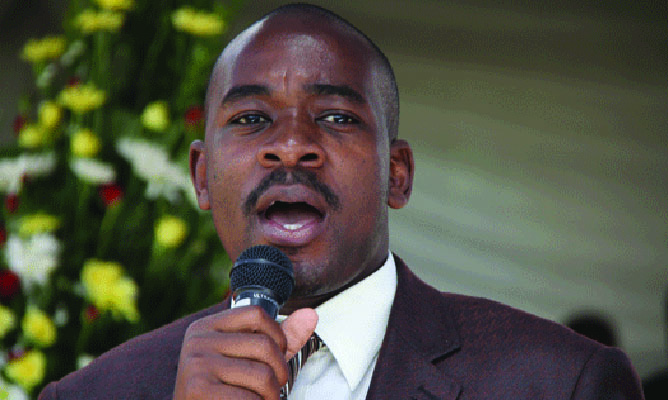
President Robert Mugabe will be compelled to respond to questions from MPs, while ministers will be punished for bunking the National Assembly if the proposed amendments to Parliament’s standing rules and regulations are approved.
BY XOLISANI NCUBE
Presenting the proposed laws to govern the conduct of MPs, chairperson of the Standing Rules and Orders committee — subcommittee on legislative reform Nelson Chamisa said the recommended regulations would open avenues for Mugabe to be summoned.
“The new standing rules bring Parliament to conformity with the new Constitution,” he said.
“In the proposed regulations, we have included a provision that Mr Speaker, from time to time, when Parliament sees fit and appropriate, invite the President to respond to questions and address certain issues.
“So we mean we will not only have the Vice-President and ministers, we are also putting up means to invite the President whenever he is available,” Chamisa said.
Mugabe is not bound to attend Parliament, but can do so as “and when he wishes to make a statement to the nation and during official opening of Parliament”.

- Chamisa under fire over US$120K donation
- Mavhunga puts DeMbare into Chibuku quarterfinals
- Pension funds bet on Cabora Bassa oilfields
- Councils defy govt fire tender directive
Keep Reading
Chamisa said the committee, chaired by Speaker of Parliament Jacob Mudenda, had also introduced measures to punish ministers and their deputies who do not attend Parliament or do not respond to motions and questions from back-benchers without any reason.
“We are putting measures to ensure the Vice-Presidents, ministers and their deputies come to Parliament . . . there are now charges for not coming to the house to respond to various questions and motions,” he said.
“We are putting an end to this culture where ministers just decide not to come to Parliament. If they are not coming, they have to state the reason and not keep quiet.”
The proposed parliamentary regulations, according to Chamisa, would introduce a new dress code for legislators as a way of “protecting the decorum of this august institution”.
“We no longer want to see some people half-dressed and some looking shabby,” he said.
If the regulations are passed as envisaged by the committee which has, among other members, chief whips from all political parties in the house, leader of government business and leader of the opposition as well as the deputy speaker and the president of the Senate together with the deputy, MPs will now have an extended time to ask questions without notices.
Besides the dress code, the committee is also seeking to establish a mechanism to allow ordinary people to petition Parliament and to set steps that ought to be taken by petitioners so that their grievances are addressed and how the plea from ordinary people would reach the office of the Speaker.
Zanu PF legislator and seconder of the proposed regulations, Daniel Shumba, said the new regulations would also increase a quorum from 25 members to 75, in line with the increased number of MPs.











